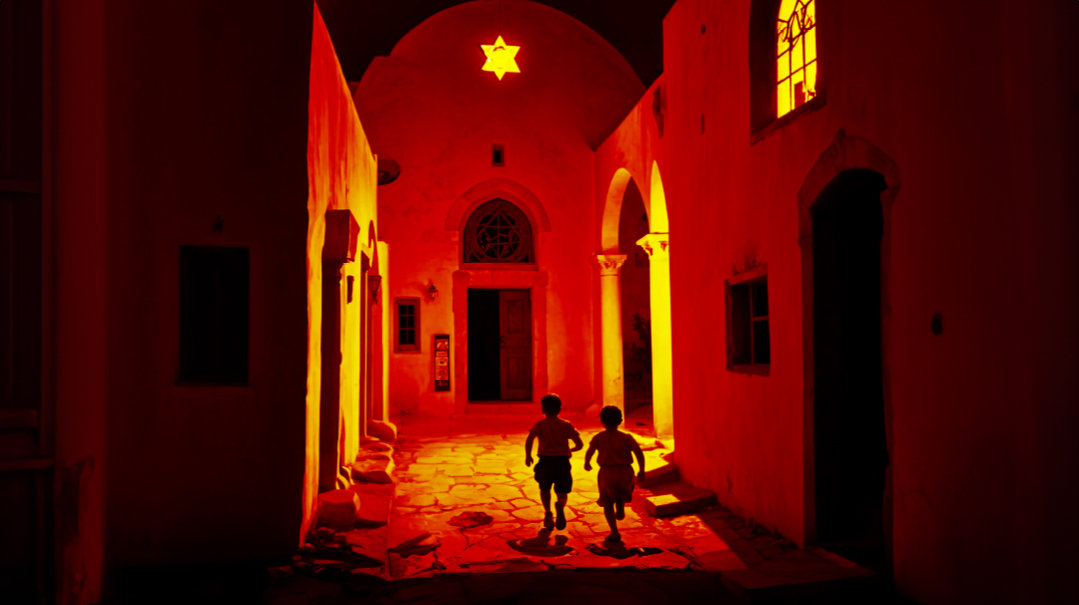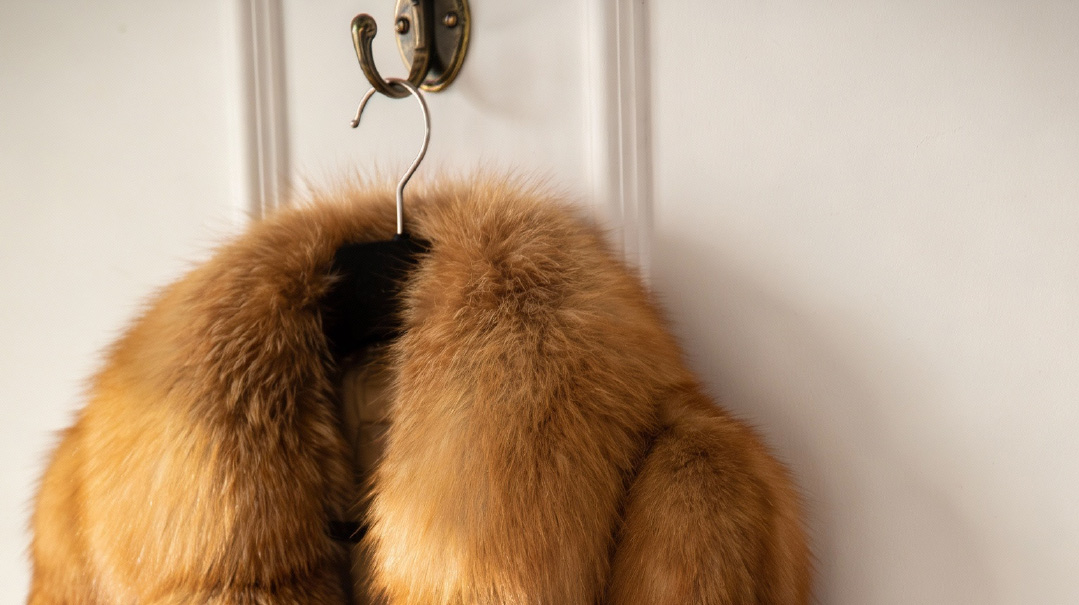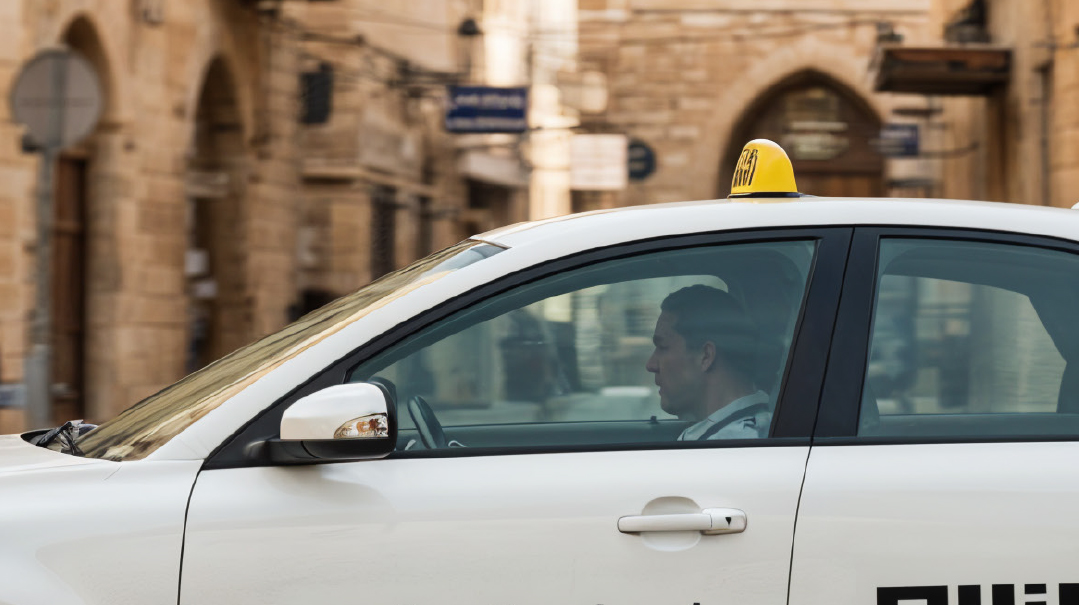The Key to Kos
| July 2, 2024True tales from the corners of our world

We stumbled on a locked, abandoned shul on a forgotten Greek island. Once we got inside, could anyone tell us where all the Jews went?
Dr. Azouz’s Story
The Background
I recently went on a Far East tour (South Korea, Taiwan, Japan) as a speaker. I met Dr. David Azouz, a plastic surgeon from Texas, and his wife Angie, and we became good friends during the course of the trip, spending a lot of time in conversation.
The Setting
We were in the airport flying from South Korea to Taiwan, when Dr. Azouz — who loved to tell stories as much as I loved to hear them — shared the following memory.
W
hile I’ve spent the majority of my life in Canada and the United States, my family can trace its roots back to Turkey and other places. A few decades ago, my wife and I went on a family vacation to Turkey. One morning, our entire group of cousins decided it would be a good day for a boat ride to the nearby Greek Islands that lie just a short distance away from Turkey.
We looked at the various options on a map before deciding to take a boat to an island called Kos (we really wanted to go to Rhodes, but it was too far away for a one-day excursion).
When we docked at Kos, the family split into two groups: Part of the family rented bikes for a nice ride, while the other half opted to explore the island instead. I was in the biking group, and later, when we rejoined, I learned that my explorer cousins had made a fascinating discovery .
“You’ll never guess what we found — the most beautiful shul you can imagine!”
Understandably, I was taken aback.
“What are you talking about? Why would there be a beautiful shul on this tiny island?”
“I have no idea,” my cousin replied. “But I know what I saw.”
“Take me there,” I requested. “I want to see it.”
We went, and they were right — from the outside you could see a shul that was as beautiful and majestic as my cousin had described, with every window in the shape of a Magen David. I really wanted to go inside to see the interior, but the door was padlocked.
The fact that there was a big lock on the door didn’t faze me; if there was a lock, then there was a key that opened it. This meant the question was, who had the key to open the lock?
I began making the rounds of stores near the shul. I entered them one by one, and each time, I greeted the owner and explained that I was a Jewish tourist who had come to visit their island and I wanted to get into the shul.
“Do you know who has the key?” I asked, over and over.
Nobody knew.
Finally, when I walked into a travel agency to ask my question, the man sitting behind the desk answered in the affirmative.
“I don’t have the key myself, but I know who does,” he said. “She’s also a travel agent. I’ll call her.”
He reached her on the phone and explained that a group of tourists in his travel agency storefront really wanted to see the shul from the inside. At first she refused, but then my aunt who was with us, and who knew a nice amount of Greek, got on the phone.
“We would appreciate it very much if you would open the shul for us,” my aunt implored. “Our family is from this part of the world, we have history here — this shul is part of our heritage. It would mean a lot if you would let us in.”
The travel agent relented and met us outside the complex, which turned out to include not only a shul, but a cheder and mikvah as well. The shul itself was nothing short of magnificent, with intricate detail.
The travel agent told us that back in the day, the Jewish community comprised of 400-plus families.
“What happened to them?” we asked.
“The Nazis came and gathered all the Jews on a ship and took them out to sea,” she reported. “They were all were killed. You can see the names of the families on one of the walls in the shul.”
We asked if there were any survivors, and she told us of a local man who tried saving some of the Jews by hiding them in the water cisterns, but they were discovered and killed, as was the righteous local.
“So there were no survivors?” we asked. It was a terrible story.
“Nobody — except for one family, the Menashes. Someone from the island smuggled them off Kos on a small boat and took them across the ocean to Palestine.”
For the next little bit, we davened in the shul, soaking up the atmosphere of a place where time had simply stopped for the Jews. Once we left, went to a café near the water on the other end of the island. There, a man heard us talking among ourselves.
“Excuse me, are you Israelis?” he asked me.
“No.”
“You sound like Israelis.”
“We’re from Canada and America, and some of us live in Turkey. We aren’t Israelis, but we are Jewish.”
“You’re Jewish?”
“Yes.”
Pointing at himself, the man said, “I saved a Jewish family from this island.”
You could have knocked me over with a feather. There was no way this man could have possibly known that we had just spent a couple of hours at the only shul on the island and heard the story of what happened to the Jewish community of Kos.
“You saved a Jewish family from this island?”
“Yes. They were the only family that survived — the Menashe family.”
I asked him to share the story. He spoke in Greek and my aunt translated.
“I will never forget that night of our escape,” he began. “It was the night before the Germans destroyed the entire Jewish community. My father was very good friends with many of the Jews of Kos. He tried to hide 23 Jews in some cisterns, but the Germans discovered them and everyone was killed, including my father. Meanwhile, I took the Menashe family — father, mother, and three daughters — on my boat, and we left the island.
“We traveled for around a day and a half. I was aiming my boat for Tel Aviv, but I miscalculated and ended up reaching the beach at Gaza instead. Once we docked, we were attacked by the local Arabs. One of the Menashe daughters was killed. I myself was stabbed by the Arabs.”
He lifted his shirt and showed me the scar.
It was a sad story, but the man was happy to have met us, to have the opportunity to share it with people to whom it meant something.
We parted with warm feelings on all sides, and as we boarded the boat that evening for our return trip to Turkey, I couldn’t help thinking about the lady with the key to the shul in Kos; the names on the wall — more than 400 families, killed by the Nazis; the 23 people who hid, unsuccessfully, in the cisterns; and the Menashe family who fled by boat across the Mediterranean Sea in the middle of the night.
We are a people of roots and connections and heritage. Wherever we go, anywhere and everywhere in the world, we somehow tap into the things that matter to us most.
(Originally featured in Mishpacha, Issue 1018)
Oops! We could not locate your form.







